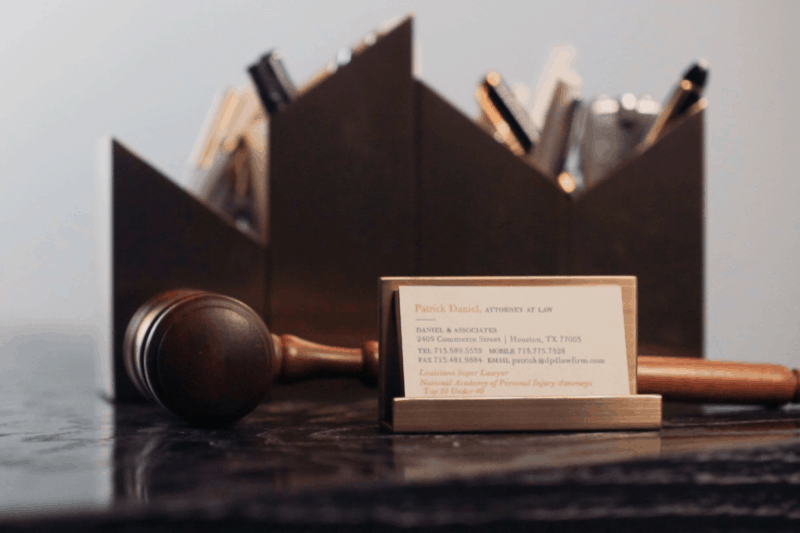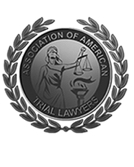
Personal injury claims – or tort lawsuits – arise whenever a plaintiff has suffered injury to their body or mind as opposed to damages relative to their property. Tort law allows a plaintiff to seek legal remedies in civil court for all damages caused because of a particular incident.
When a person is killed because of someone else’s negligence or carelessness, wrongful death lawsuits are filed. These claims allow plaintiffs to seek remedies and recover damages that are different from those sought for non-fatal injuries. Most wrongful death suits stem from incidents such as motor vehicle crashes, construction/commercial incidents or the use of a defective product.
Car crashes are a major public health concern in the United States. On average, about six million car accidents occur every single year in the USA as per the CDC. Half of those individuals involved in car accidents become injured as a result. The insurance companies have teams of attorneys and adjusters on their sides with the sole mission of paying injured plaintiff’s as little as possible. Therefore, it is common for injured plaintiffs to hire a well-informed personal injury attorney to be in their corner.
Injuries that occur while under the scope of employment are filed as workers’ compensation claims as opposed to bringing a personal injury lawsuit against the employer. The laws relative to workers’ comp claims vary from state to state.
Premises liability cases arise when dangerous conditions on someone’s property results in an injury to someone else. A common example would be a customer slipping in a store that failed to display a “wet floor” sign. Any injury caused by an owner’s carelessness or failure to maintain their property could result in a premises liability lawsuit.
Any individual, business or government entity who sold, designed, marketed or distributed a dangerous or defective product that causes injury could be held liable in a court of law. The four elements a plaintiff must prove are defect, causation, injury and duty. The three theories for which a plaintiff is entitled to sue are negligence – whether the manufacturer has a duty to provide a safe product; strict liability – plaintiff can sue regardless of whether the seller was negligent or not; and breach of warranty – when products have warranties that fail or cause injury.
There are two types of maritime workers: those who meet the legal definition of “seamen” and those who work on or near the water. Unlike their non-maritime peers, seamen are not afforded workers’ compensation benefits under state or federal law. Instead, a seamen is able to pursue other remedies, including suing their employer under the Jones Act for the injuries sustained while at work. Additionally, a seaman is allowed to pursue damages against the owner of the vessel on which he was injured, as well as receive maintenance and cure.
The Jones Act, the federal law that allows a seaman to sue his employer, requires maritime employers to provide a seaman with a reasonably safe place to work and use ordinary care to maintain and keep the vessel on which the seaman works in a reasonably safe condition. Unlike most negligence cases, the legal burden an injured seaman must prove to recover under the Jones Act is much lower. That is, an injured seaman, under the Jones Act, must only demonstrate that the employer’s negligence played a part, no matter how small, in the seaman’s injuries.
Please do not attempt to determine if you have a compensable case. You must consult a relevant liability attorney who has the expertise and extensive knowledge necessary to determine who ultimately caused the harm and injuries you or a loved one suffered.
Contact us today for a free case evaluation here.
 Top Truck Accident Lawyer in Pasadena
Top Truck Accident Lawyer in Pasadena Best of The Best Attorneys
Best of The Best Attorneys Best of the Best Houston Chronicle 2021
Best of the Best Houston Chronicle 2021 Best Motorcycle Accident Lawyers in Houston 2021
Best Motorcycle Accident Lawyers in Houston 2021 American Association for Justice Member
American Association for Justice Member The National Trial Lawyers 2016 – (Top 40 under 40)
The National Trial Lawyers 2016 – (Top 40 under 40) Multi-Million Dollar Advocates Forum 2016 (Top Trial Lawyer)
Multi-Million Dollar Advocates Forum 2016 (Top Trial Lawyer) Million Dollar Advocates Forum 2019 (Top Trial Lawyer)
Million Dollar Advocates Forum 2019 (Top Trial Lawyer) America’s Top 100 Attorneys 2020 (High Stake Litigators)
America’s Top 100 Attorneys 2020 (High Stake Litigators) Lawyers of Distinction 2019, 2020 (Recognizing Excellence in Personal Injury)
Lawyers of Distinction 2019, 2020 (Recognizing Excellence in Personal Injury) American Institute of Personal Injury Attorneys 2020 (Top 10 Best Attorneys – Client Satisfaction)
American Institute of Personal Injury Attorneys 2020 (Top 10 Best Attorneys – Client Satisfaction) American Institute of Legal Advocates 2020 (Membership)
American Institute of Legal Advocates 2020 (Membership) Association of American Trial Lawyers 2018 - Top 100 Award recognizing excellence in personal injury law
Association of American Trial Lawyers 2018 - Top 100 Award recognizing excellence in personal injury law American Institute of Legal Professionals 2020 (Lawyer of the Year)
American Institute of Legal Professionals 2020 (Lawyer of the Year) Lead Counsel Verified Personal Injury 2020
Lead Counsel Verified Personal Injury 2020 The Houston Business Journal 2021
The Houston Business Journal 2021